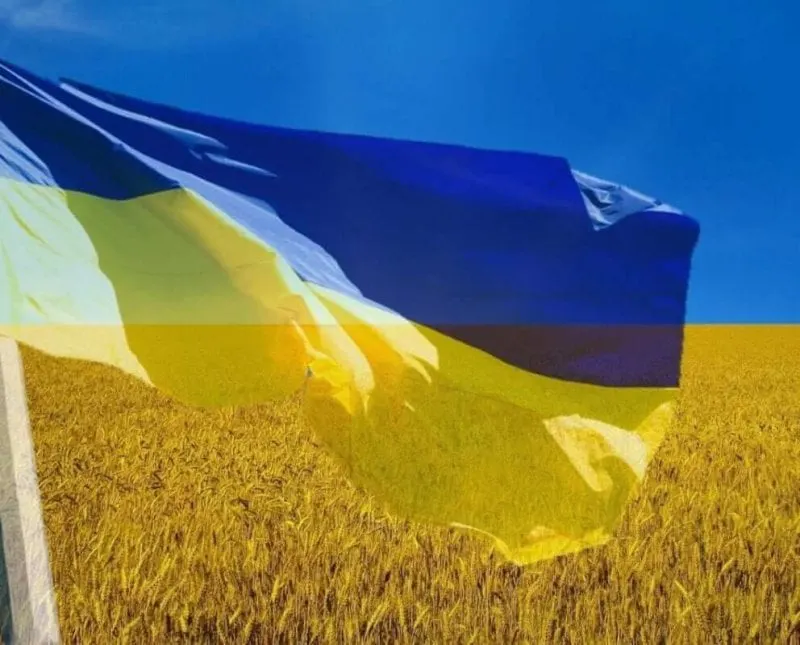Ukraine crisis prompts Europe to rethink Green Deal Farm to Fork policy, move away from organics to achieve sustainability goals
Ukraine crisis prompts Europe to rethink Green Deal Farm to Fork policy, move away from organics to achieve sustainability goals


According to the “Green Deal”,with which the European Union wants to become climate-neutral by 2050, only half as many pesticides and 20 percent less synthetic fertilizers are to be used by 2030.
And so, in view of the Russian attack on Ukraine, voices are being raised in Germany that question the sustainability goals of EU agricultural policy. Agricultural production in the EU must be “expanded significantly in the short term,” according to the co-governing FDP parliamentary group. Parts of the opposition CDU and the German Farmers’ Association are also calling for various ecological measures to be suspended in order to increase production in the face of the Ukraine war.
According to the largest German agricultural trader Baywa, the wheat exports from Ukraine and Russia via the Black Sea, which are important for world nutrition, have largely come to a standstill. Both countries are among the major exporters of staple foods such as corn, wheat and vegetable oils.
…
Should the EU forego more sustainability in agriculture in the future in order to relieve the strained food market – or even export more itself?
“If we produce less here in Europe, more will be produced elsewhere, and that could possibly lead to even higher environmental costs than here,” points out [economics professor Stephan] von Cramon-Taubadel.
[Editor’s note: This article was originally published in German and has been translated and edited for clarity.]
This is an excerpt. Read the original post here.

 | Videos | More... |

Video: Nuclear energy will destroy us? Global warming is an existential threat? Chemicals are massacring bees? Donate to the Green Industrial Complex!
 | Bees & Pollinators | More... |

GLP podcast: Science journalism is a mess. Here’s how to fix it

Mosquito massacre: Can we safely tackle malaria with a CRISPR gene drive?

Are we facing an ‘Insect Apocalypse’ caused by ‘intensive, industrial’ farming and agricultural chemicals? The media say yes; Science says ‘no’
 | Infographics | More... |

Infographic: Global regulatory and health research agencies on whether glyphosate causes cancer
 | GMO FAQs | More... |

Why is there controversy over GMO foods but not GMO drugs?

How are GMOs labeled around the world?

How does genetic engineering differ from conventional breeding?
 | GLP Profiles | More... |

Alex Jones: Right-wing conspiracy theorist stokes fear of GMOs, pesticides to sell ‘health supplements’




 Viewpoint — Fact checking MAHA mythmakers: How wellness influencers and RFK, Jr. undermine American science and health
Viewpoint — Fact checking MAHA mythmakers: How wellness influencers and RFK, Jr. undermine American science and health Viewpoint: Video — Big Solar is gobbling up productive agricultural land and hurting farmers yet providing little energy or sustainabilty gains
Viewpoint: Video — Big Solar is gobbling up productive agricultural land and hurting farmers yet providing little energy or sustainabilty gains Fighting deforestation with CO2: Biotechnology breakthrough creates sustainable palm oil alternative for cosmetics
Fighting deforestation with CO2: Biotechnology breakthrough creates sustainable palm oil alternative for cosmetics Trust issues: What happens when therapists use ChatGPT?
Trust issues: What happens when therapists use ChatGPT? California, Washington, Oregon forge immunization alliance to safeguard vaccine access against federal undermining
California, Washington, Oregon forge immunization alliance to safeguard vaccine access against federal undermining 30-year-old tomato line shows genetic resistance to devastating virus
30-year-old tomato line shows genetic resistance to devastating virus The free-range chicken dilemma: Better for birds, but with substantial costs
The free-range chicken dilemma: Better for birds, but with substantial costs ‘You have to treat the brain first’: Rethinking chronic pain with Sanjay Gupta
‘You have to treat the brain first’: Rethinking chronic pain with Sanjay Gupta
